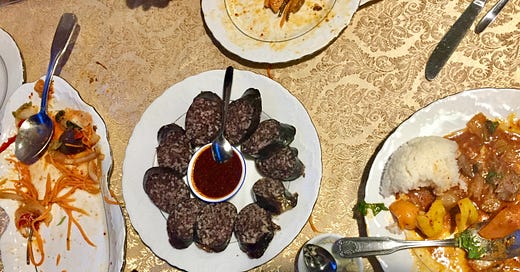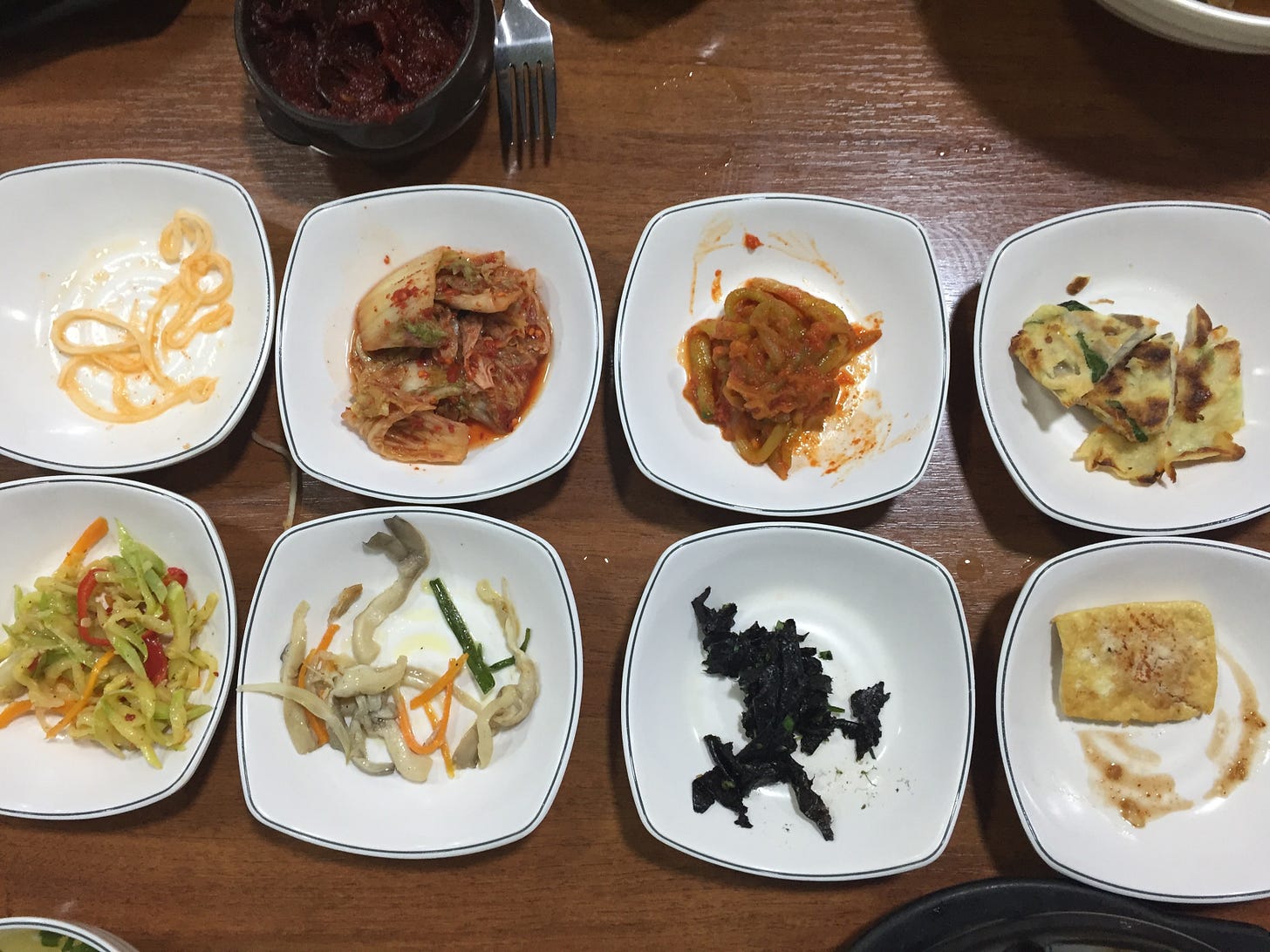Only good things happen on Avenue O. To me, it’s only good things. On one International Women’s Day, a Russian-speaking woman in a turquoise pantsuit stood up to do karaoke and handed me a bottle of syrupy strawberry-flavored Champagne. I went to pour glasses for the table. “No,” she said. “Have the men do it. Women don’t work on International Women’s Day.”
I first learned about Cafe Lily from the New York Times, reading on my phone horizontal in bed about six months after I landed in Brooklyn like a rock in a hard place. I wanted to want to want to eat, was figuring it out in real time, and suddenly I saw someone write about eating, really saw, in a way that made me need to be where they were. In the first paragraph, a tangle of fernbrake, a shovel’s worth of forest floor. In the second paragraph, the woody greens become comfort found in a bunch of kindling.
I took the N train to the edges of Bensonhurst and sat cross-legged on a carpet laid over astroturf laid over a raised platform in a backyard, low table, low haze of cigarettes. The night was warm and I had blood sausage and vodka—only good things happen on Avenue O.
Cafe Lily serves Koryo-saram food, the food of the ethnically Korean population of Uzbekistan. The food of the ethnically Korean Uzbek population of Bensonhurst. The thing I love about Brooklyn, one thing among things, is that it’s a whole world of whole worlds: an entire ecosystem of tart and pickle-y salads, the cognitive dissonance of vinegared matchsticks of carrot, white-cabbage kimchi bright and restrained, beside the blunt force chop of tongue, peas, egg, gherkins, mayonnaise. The kind of food that makes you say I had no idea, and then makes you feel small in a good way, because you never really have any idea, and nothing is less of an idea, anyway, than a table full of food. A table full of bowls, bony broth that’s almost milky, which you salt yourself before spooning in the rice, the herbs, the onions, the chili. It’s called u-kadya. Look, she’ll show you the right way to assemble it, she’ll sprinkle the sesame seeds, a little from this bowl, a little from that.
A year after I first went to Cafe Lily, I went to Uzbekistan, a wide, tiled country that is dry heat in summer and right in the middle of history, as much as any place is. Cuisines don’t tend to meet each other head-on without a little friction, and from what people told me, this collided cuisine is a story you may have heard before: a leaving of home, opportunity, safety, or exile, force, a making of home, either way, in a place that has no less friction than where you came from. But what grew from it is conversation, a natural back and forth. Spiced beef and onions steamed in a thin dumpling purse, with sour cream; spiced beef and onions steamed in a thick, foamy bun, with soy and chili sloshed together with a fork. Brined fish swirled with peppers or flaked over potatoes, noodles thick, hot, oily or fine and cold and brothy. Somewhere in between, the ferns, toothsome and hiding small morsels of meat in its slick, savory thicket. At Cafe Lily, you must order the ferns. We are never so far from each other, in the end.
I wandered into Cafe Lily that first time and they asked with a smile how did you get here, and I asked it back, and we met each other with blood sausage and vodka. Over the years I have taken many people to the edges of Bensonhurst, looking out the window of the N train in the wet dark, the icy wind, the squelch of high summer, to try to show them this whole world that I found, but also didn’t. Look, they’ll have a shot with us then put Uzbek Idol on the television. Look, it’s men frowning kindly in berets with cigars and a glinting fifth of whiskey in the center of the table. Look, it’s International Women’s Day, did you know? It’s a big thing in Uzbekistan. And we don’t understand each other, but we can understand each other, and now we’re singing, and where else, really, could we be.
note: BYOB
would order again: kuksi, u-kadya, manty, begodya, sundya, fish khe, assorted Korean salads, fern with meat





